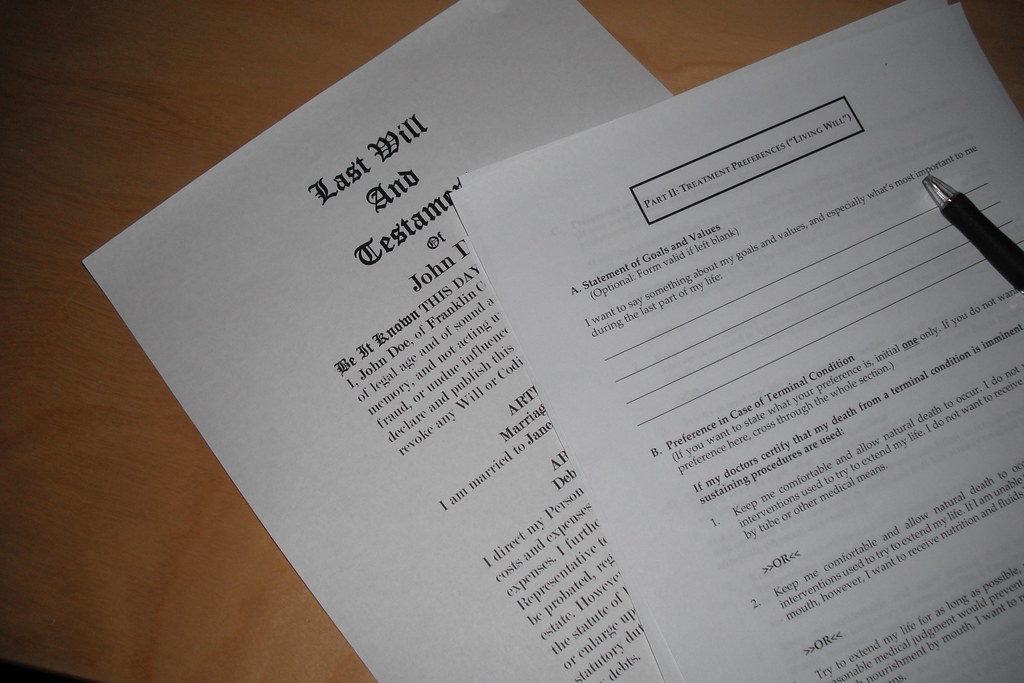
While most people don’t like to dwell on the idea of death and its implications, a well drafted will could save the deceased’s dependants years of legal battles and thousands of pounds in fees.
A number of people close to the deceased could use a poorly drafted will to raise disputes and potentially claim a portion of the inheritance. As expected, immediate relatives including spouses and children would be able to make such claims.
But this also includes former spouses or partners (if the person never remarried), people the deceased supported financially prior to his or her death, and any step-children to name a few. If the applicant is successful, the court can make an order where the beneficiary receives periodic payments, a lump-sum or even a property that was part of the estate.
In more recent times, the trend for the UK courts has reflected the strict interpretation of the Law when it comes to inheritance disputes and when claims are made by dependants who believe that their loved-ones have not made an adequate financial provision.
This has also impacted the life after death of even well-known celebrities, such as George Michael, when his former partner sued his estate for a share of the well-known singer’s £98,000,000.00 estate after he died.
Beyond the obvious shock that an executor or personal representative could face for such claims., a lengthy and complicated probate could be financially devastating for potential beneficiaries and cause havoc for any children of the deceased under the age of 18. Costs to cover the probate will be paid out of the deceased’s estate – something that can quickly drain a potential inheritance.
Michael Jackson, the famous king of popular music is an example of how staggering costs can accumulate. Some of his siblings felt that Michael had not made adequate provisions for them and all sorts of arguments unfolded including a dispute relating to guardianship of his children.
These and many other headlines, are only the tip of the iceberg, when it comes to highlighting the importance of making sure that your will is drafted in a water-tight way.
Seeking professional help when drafting a will can avoid several potentially devastating pitfalls down the line.
What is a valid will?
For a will to be legally valid, the testator (the person who makes the will), must be over 18 and of sound mind. The will must be in written format and it must be created voluntarily.
Being of sound mind includes not being under the influence of alcohol or drugs when writing and signing the will.
If there is any doubt as to capacity, a medical letter to show that the deceased was in fact of sound mind and capacity, is advisable.
Also, it must be signed and dated in the presence of two witnesses, both over 18. The witnesses need to sign the will too. Importantly, the testator cannot leave anything in the will for the two witnesses or their spouses.
Not doing the above could invalidate the will which will mean the deceased’s wishes may not be taken into account.
How to leave things for dependents
If the testator wishes to leave his or her dependents money or specific items, they must remember that any bequests will be carried out only after their debts and liabilities are paid out of the estate. Not accounting for debts and costs can mean not everyone will receive a pay-out.
If the testator makes a ‘pecuniary bequest’, this means they’re leaving a set amount of money for a dependent. For example, a grandmother may choose to leave £1000 for each of her grandchildren on her death. Pecuniary bequests are paid out before other types of bequests and can accrue interest if they’re not paid out within a year.
If the testator makes a ‘specific bequest’, this means they’re leaving a particular item they own for a dependent. For example, a deceased husband may wish to leave his wife a motorcycle he owns. As long as the motorcycle is still in his ownership when he dies, his wife should be able to inherit it.
A residual bequest is paid out only after a pecuniary bequest and if there is still money in the estate. It is usually a percentage of the estate after debts, taxes, costs and liabilities have been paid. For instance, the deceased may wish to leave a quarter of the estate to his brother. This can only happen after all liabilities have been paid and after all pecuniary bequests have been paid out too and only if there is still money in the estate.
There are other types of bequests testators may wish to explore too. For instance, conditional bequests require the benefactor to meet certain conditions before they can inherit. If a parent does not wish their 18 year old to inherit a large amount of money at a young age, they may set a condition that the benefactor will only inherit the sum when they reach the age of 25, for example. Other conditions may be set out too, if, for example, the testator wants the money to be used towards the deposit for a first house or education.
No valid will? The estate will be distributed according to the rules of intestacy
If the deceased made a will which is found not to be legally valid, their estate will be shared out using the rules of intestacy. Under these rules, only close relatives and married or civil partners can inherit a portion of the estate. This rule also applies when a will is not made.
This does not include former spouses or civil partners. However, if the separation was informal, the partner can still inherit. If the estate is valued at above £270,000 and the deceased has children, the deceased’s spouse would inherit all their personal belongings, the first £270,000 of the estate and half of the remainder of the estate.
While this distribution may work for some people, if the deceased wanted to leave a chunk of their money to charity or a distant relative, their wishes will likely be ignored in favour of the rules of intestacy.
The famous singer and legend Bob Marley is a case in example of what can happen when you don’t have a will. Bob Marley died intestate, leaving a plethora of claims for his 11 children and their mothers for a stake in his 30 million US dollar estate.
What could go wrong if the will is valid but not properly drafted?
While understanding the different types of bequests and their implications is important, there are a number of pitfalls that could occur if the will is not properly drafted.
Forgetting to name an executor – i.e. someone who will be responsible for the administration of the estate after the person dies – would mean that a probate court would name an executor instead. This may not be the testator’s first choice. It is therefore important to select family members or solicitors who the testator trusts to serve as executors.
Being too specific with a specific bequest could mean beneficiaries don’t inherit. If the testator wanted to leave his motorcycle to his wife, but specified that he wishes to leave his Honda motorcycle and later upgrades to a Harley Davidson but forgets to update his will, other dependants may raise a dispute about this. By not specifying the make or model, the testator leaves less room for potential disputes.
The testator may wish to leave certain dependents out of their will. But not specifying why they have done so, especially when it comes to direct relatives, could open up the will to disputes. Any costs will need to be recovered from the estate which could leave the rest of the beneficiaries with little to inherit. Further, if the applicant is successful, this would override the will and they could get a pay-out.
From ensuring the will is valid, to understanding the different types of bequests, to avoiding pitfalls, writing a well-drafted will is an incredibly complex task which is usually best left to professionals.
Table of content
Recent Posts
What Age Can a Child Decide Which Parent to Live With? A Family Solicitor’s Insight
Divorce and separation are incredibly difficult for everyone involved, [...]
Tokenization: UK Law On Tokenizing Real-World Assets
The world of finance is being reshaped by tokenization, where [...]
Lidl v Tesco: A Clubcard Catastrophe
In an unexpected turn of events, discount supermarket giant [...]






